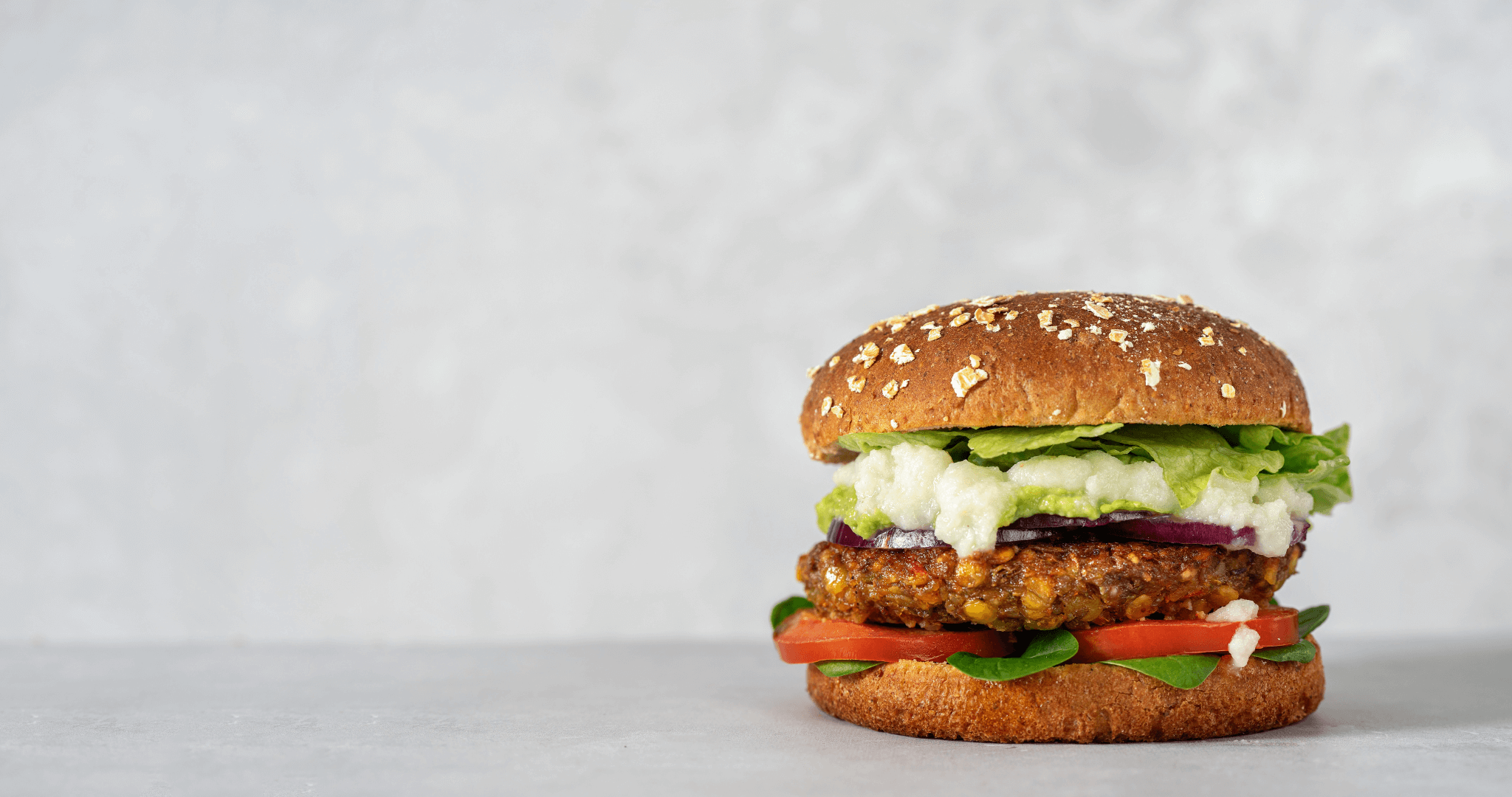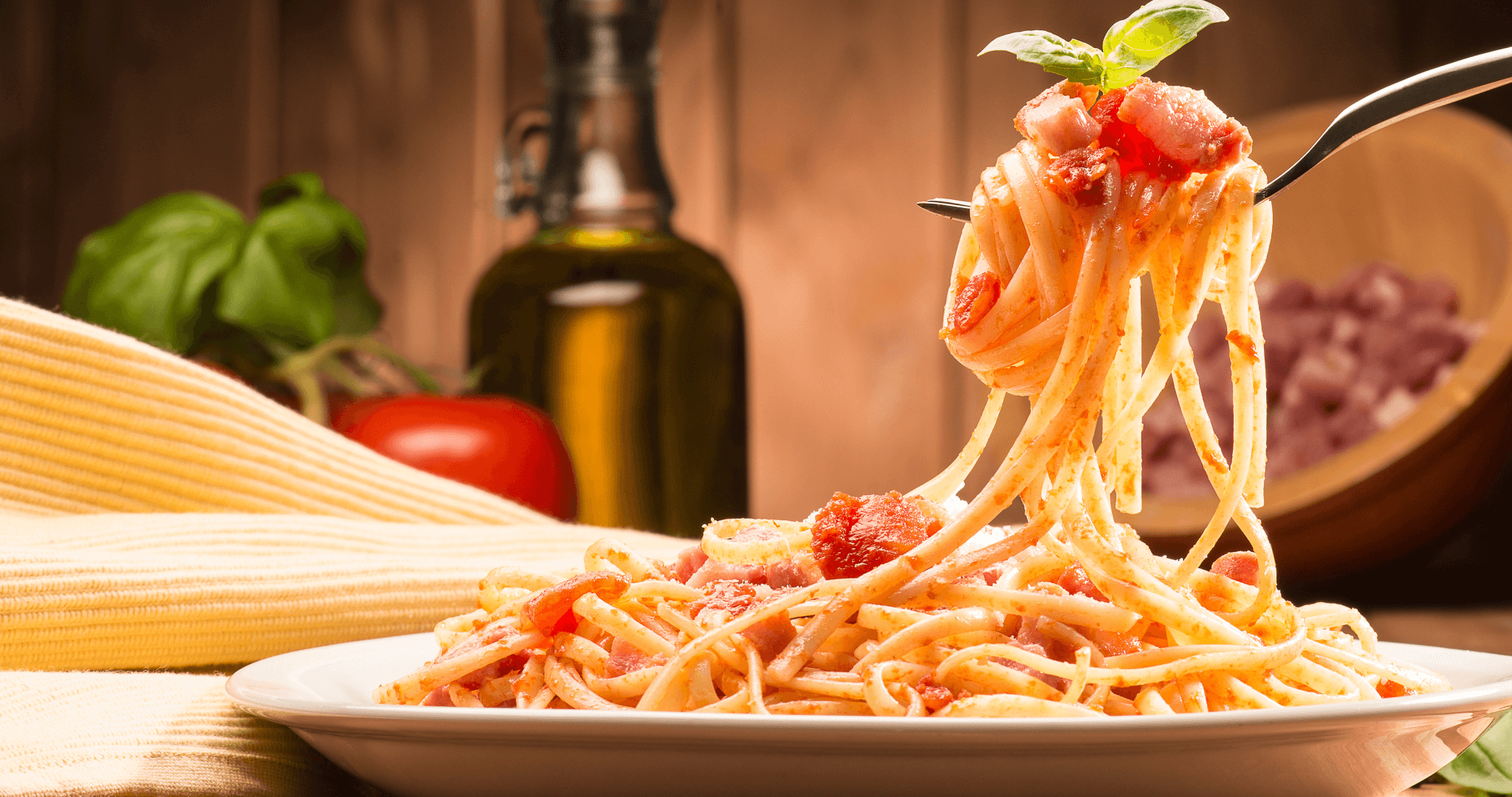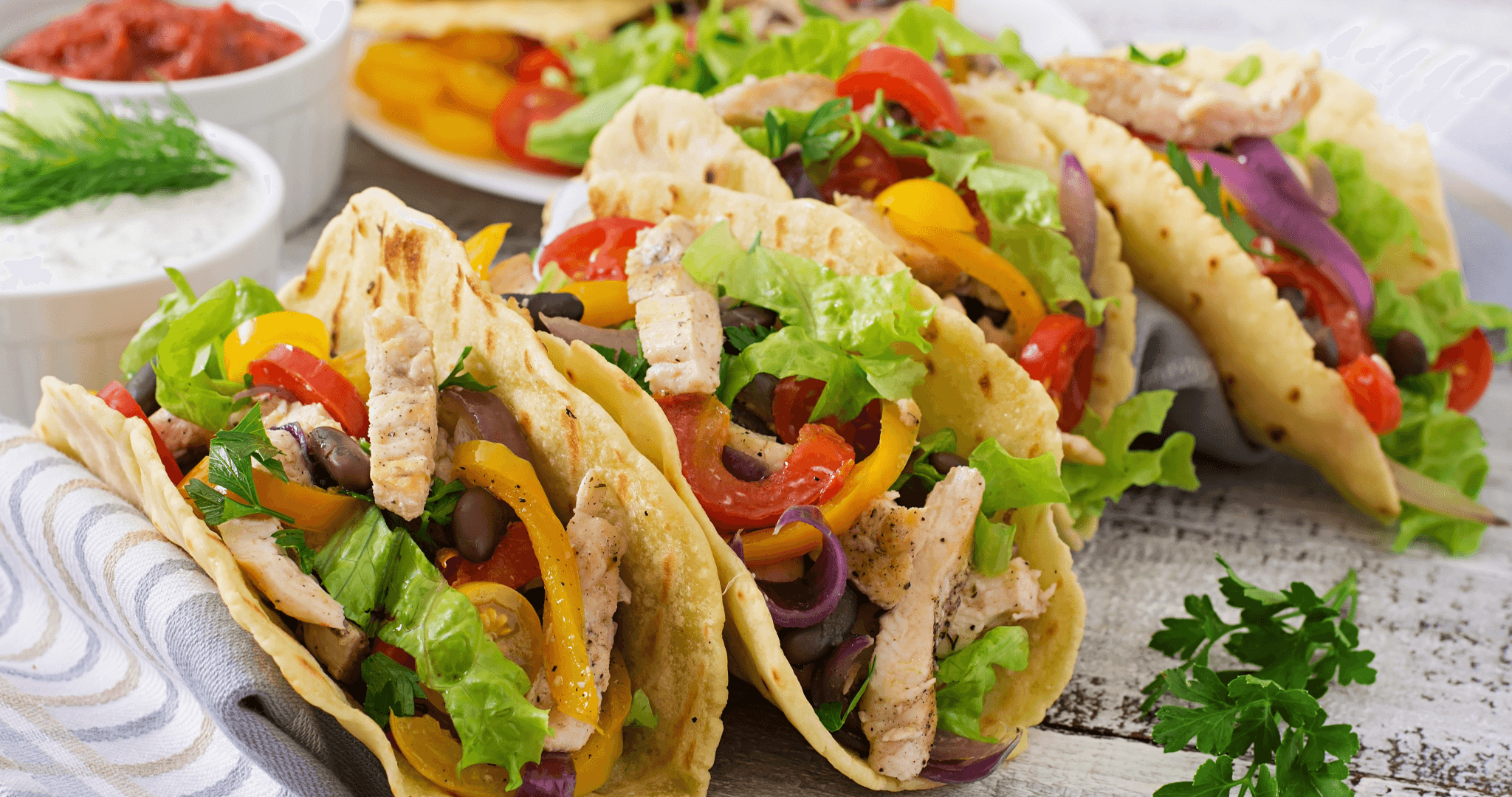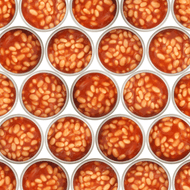This Week in Hospitality: Key Media Stories on the UK Hospitality Industry - Week 6
Posted by Emily on 17th Feb 2024 Reading Time:
Welcome to our weekly round-up, where we delve into the mainstream media's hospitality industry coverage or news that could affect hospitality.

This article is crafted to inform you about the latest news, trends, and developments in the sector. We've handpicked articles from reputable sources that shed light on the dynamic and evolving world of hospitality. Our selection criteria focus on each story's significance, relevance, and impact, ensuring a comprehensive understanding of the industry's current state.
'We block 10 people a day': culture war trolls add to UK vegan restaurants' struggles
17 February 2024, Josh Halliday, The Guardian

Jim Anderson and his wife, Samantha, owners of the Oak Tree, a vegan restaurant that opened in 2013, have experienced a shift in how they present their business due to harassment. The term "vegan" has attracted so much abuse online that they've removed it from their menu and social media to avoid becoming targets. This change underscores a broader challenge within the UK's hospitality sector, particularly for vegan establishments facing cultural backlash and economic pressures. High operating costs, the impact of the cost of living crisis, and a decreasing interest in plant-based dining have disadvantaged vegan restaurants. Several have shut down or diversified their menus to include meat to stay afloat. The Oak Tree remains one of the few vegan spots in Leigh-on-Sea, a stark contrast to its initial competition. The pandemic has further exacerbated these struggles, shifting consumer preferences towards more flexible eating habits, including pescatarianism. The downturn in vegan dining is likened to the decline in organic food's popularity after the 2008 financial crisis, as economic hardships prompted consumers to prioritise value over ethics.
Pryzm nightclub boss blames lack of students for closures

15 February 2024, Sam Gruet, BBC
Peter Marks, the head of the UK's largest nightclub chain, Rekom, attributes the closure of 17 venues and the loss of 500 jobs to students pre-drinking and avoiding mid-week club outings. Amidst a cost of living crisis, students have notably reduced their nightclub activities. This issue is compounded by the fact that close to 400 clubs have permanently closed from March 2020 to December 2023, per the Night Time Industries Association (NTIA). The closures include Pryzm clubs in multiple cities and Atik nightclubs in Dartford, Romford, Windsor, and Wrexham. Besides economic pressures, the decline in young people's alcohol consumption and a broader range of nightlife options are believed to influence this trend. Marks notes the significant impact of increased living costs on student behaviour, leading to decreased patronage and financial challenges for nightclubs. Rising operational costs and the need to raise staff wages have further strained Rekom's finances. Retail analysts suggest that the diversification of leisure and entertainment options, alongside changing social habits post-pandemic, have shifted young people's spending away from traditional clubbing. Additionally, there is a noticeable trend towards no and low alcohol consumption among younger demographics. Marks has called for governmental support by reducing VAT rates to alleviate the nightlife sector's pressures.
Zizzi owner plans Boojum restaurant expansion amid sale rumours
Dominic Walsh, The Times, 12 February 2024

Azzurri Group, known for its ASK and Zizzi restaurant chains, is set to broaden its culinary horizons by introducing the Boojum Mexican restaurant to the British mainland, starting with a new location in Leeds. This expansion comes amidst whispers of a potential sale of the company. With 17 Boojum outlets primarily located in Belfast and Dublin, the Leeds site will mark Boojum's British debut and feature the chain's first central production kitchen. Azzurri Group's CEO, Steve Holmes, is optimistic about the brand's growth, planning to open several more outlets before the summer and aiming for a steady expansion rate in the coming years. Holmes highlights the underrepresentation of Mexican cuisine in the region and the strategic move to cater to the northern student population. Despite the speculation about its private equity backer, TowerBrook Capital Partners, considering an exit, Azzurri shows no signs of slowing down, boasting solid sales figures and expansion plans across its brands. The Group has successfully navigated the pandemic-induced challenges, transitioning Coco di Mama into a delivery-focused brand and venturing into retail with Zizzi and Coco di Mama products now available in major supermarkets.
Wiltshire set to join growing number of councils defying plant-based movement
FarmingUK, 15 February 2024

Wiltshire Council is poised to resist the plant-based movement, emphasising its support for local farmers across all sectors. This stance comes as part of a Countryside Alliance initiative urging local authorities to back farmers by opposing obligatory plant-based menus. A forthcoming vote on 20 February could lead Wiltshire to procure event foods, including meat and dairy, exclusively from local suppliers. The motion aims to vocalise opposition against diminishing the importance of meat, dairy, and arable farming in the rural lifestyle. This decision follows similar actions by Dorset, Suffolk, Cornwall, Portsmouth, Fenland, and North Northamptonshire councils. The motion, proposed by Conservative Councillor Nabil Najjar, also seeks to support farmers by promoting diversification and local shopping through the Wiltshire Marque labelling program. The Countryside Alliance encourages all Wiltshire councillors to support this motion, highlighting a national shift towards appreciating locally sourced foods and offering inclusive solutions beyond dietary restrictions.
Nelson Peltz backs Unilever boss as changes take shape
13 February 2024, Tom Saunders, The Times

Unilever's CEO, Hein Schumacher, has received backing for the company's new strategic direction from Nelson Peltz, the billionaire activist investor and Unilever board member, despite lingering scepticism from other investors. Schumacher's plan focuses on a rigorous marketing strategy for leading brands like Dove, Hellmann's, and Ben & Jerry's. It hints at a possible reduction of its 127,000-strong workforce. Peltz acquired a 1.45% stake in Unilever through his Trian Partners fund and has a history of influencing significant changes within large corporations. Despite Unilever's struggle to enhance profit margins post-pandemic and criticisms over its sustainability focus, Schumacher, who succeeded Alan Jope in July 2023, aims to rejuvenate the company by concentrating on its top 30 brands.
Additionally, Unilever initiated a €1.5 billion share buyback following a slight increase in sales volumes. However, it faced setbacks in its ice cream and nutrition brands, leading to a 10% decrease in pre-tax profits compared to the previous year. Amidst leadership changes and strategic shifts, Unilever's stock slightly dipped, reflecting the challenges and expectations ahead.
McDonald's, Taco Bell, Shake Shack say to expect smaller price increases in 2024
16 February 2024, Grace Dean, BusinessInsider

Major fast-food chains like McDonald's, Shake Shack, and Taco Bell are planning only modest price increases in 2024, reflecting a trend as inflation stabilises. Throughout the pandemic, these chains had implemented significant price hikes due to increased costs in wages, food, packaging, and supply chain disruptions. For instance, data from the US Bureau of Labor Statistics reveals that prices at limited-service restaurants increased by 8% from January 2021 to January 2022, followed by a 6.7% rise the next year and a 5.8% increase last year.
Despite the slight cooling in inflation, the cumulative effect of these increases has left some customers, like Martin Jennings, a truck driver from Florida, feeling the pinch and reducing their fast-food consumption. In contrast, Ben Heyworth, an account executive, has shifted his preference to fast-casual restaurants, finding them to offer better value in terms of food, service, and atmosphere.
Shake Shack and Wendy's executives have announced plans for relatively small price adjustments in 2024, aiming to align more closely with pre-pandemic pricing strategies. McDonald's and Taco Bell have also signalled less dramatic price increases, focusing on attracting customers through app deals and value menus.
While optimism prevails among fast-food executives for the year ahead, thanks to subsiding inflation and robust employment levels, California diners might face steeper increases due to a minimum wage hike for fast-food workers. Digital ordering and kiosks are also being deployed to encourage higher customer spending.
Angry locals in posh Home Counties town outraged at Wetherspoons opening on high street
17 February 2024, Joe Smith, The Mirror

Residents of Marlow, Buckinghamshire, a town characterised by its affluence and high average income, are expressing discontent over the plans to open a Wetherspoons pub. The proposed site, previously an M&Co store, is situated in Marlow's Market Square, an area known for its independent boutiques and high-end dining options, including Tom Kerridge's Michelin-starred pub, The Coach. Locals fear introducing Wetherspoons, famed for its affordable beer and burger deals, will attract a different clientele and diminish the town's upscale atmosphere. While some residents argue that the chain will provide a more affordable dining option and criticise the resistance as elitist, others are concerned about the potential social and economic impacts, including the safety and well-being of the community due to increased alcohol consumption. The debate highlights the tension between preserving the character of upscale communities and offering accessible amenities to a broader demographic.
Price rises take toll on Kraft Heinz sales
15 February 2024, Tom Saunders, The Times

In the face of rising prices, consumers are increasingly turning away from Kraft Heinz's products, leading to a significant 7.1% decline in net sales for the American multinational food group during the last quarter of the previous year. This downturn brought its net sales to $6.86 billion, falling short of analysts' anticipated $6.99 billion. Adjusted earnings before interest, tax, and other deductions also saw a 5.3% decrease, totalling $1.6 billion. Carlos Abrams-Rivera, the company's CEO, acknowledged the industry's unexpected challenges. Despite this, the decline was partially due to a shorter quarter than the previous year, with organic sales dropping by 0.7%. This pattern of declining sales, even with increased prices, reflects broader struggles within the consumer goods sector, highlighted by PepsiCo's recent sales dip. Kraft Heinz's volume decrease, attributed to price hikes and reduced food assistance benefits in the US, is seen as a significant shift in consumer loyalty towards more affordable, high-quality alternatives. The company, however, remains optimistic about returning to positive volume growth in the latter half of the year, projecting a modest organic net sales increase for 2024.
Scrap tourist tax, says Heathrow, as passengers flock back
13 February 2024, Robert Lea, The Times

Heathrow Airport is advocating for the abolition of the tourist tax implemented during the pandemic, which eliminated VAT-free shopping for overseas visitors, a move criticised by the airport as detrimental to domestic growth. This stance is part of a broader call for the government to reconsider the policy in the upcoming budget on 6 March, arguing that it hinders the UK's attractiveness for international shoppers and impacts the broader economy, including hotels, restaurants, and theaters. The airport's traffic is nearing pre-pandemic levels, with significant recovery noted in passenger numbers, indicating a resurgence in travel. Heathrow, the British Chambers of Commerce, and the Federation of Small Businesses are pushing for a competitive tax-free shopping incentive to boost international tourism and spending. The Treasury maintains that the tax does not affect Britons and that the UK's heritage and culture primarily attract tourists. Nonetheless, the hospitality sector and retail bodies argue that the policy has resulted in a substantial loss of revenue, with the British economy missing out on £1.5 billion in foreign spending. Heathrow's challenge to the VAT regime underscores its ongoing disagreements with recent Conservative government policies, including criticisms of travel restrictions during Covid-19 and the withdrawal of support for a third runway.
In this week's hospitality industry round-up, we've explored diverse stories that paint a detailed picture of the sector's current landscape in the UK. From the cultural and economic challenges faced by vegan restaurants, as seen with the Oak Tree, to the strategic expansion plans of Azzurri Group amidst the dining sector's evolution, each story offers a unique insight into the industry's adaptability and resilience. The closure of nightclubs, driven by changing consumer habits and economic pressures, alongside local councils' resistance to the plant-based movement, signifies a broader shift in societal preferences and local economies. Meanwhile, corporate giants like Unilever and fast-food chains are navigating strategic changes and pricing strategies to align with consumer expectations and economic realities.
This compilation of stories underscores the hospitality industry's dynamic nature, where innovation, strategic adaptation, and community engagement play crucial roles in sustaining growth. The challenges faced, from cultural backlash to economic constraints, highlight the need for continued support and understanding from the public and policymakers to ensure the sector's vitality. As we look ahead, the industry's ability to pivot, embrace new trends, and address consumer demands will be key to its recovery and future success. The week's news reflects not just the trials of the present but also the potential for reinvention and prosperity in the UK hospitality sector.

